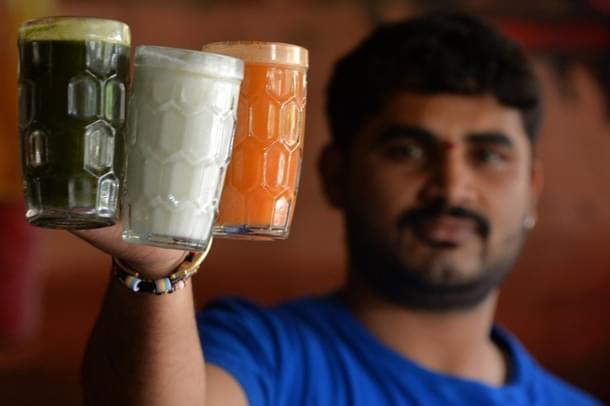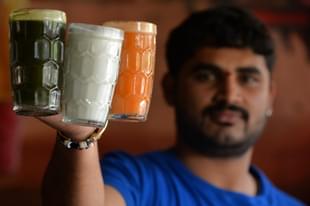Business
The Discovery of ‘Indian’
Nandini Vaidyanathan
Nov 20, 2014, 06:37 PM | Updated Feb 24, 2016, 04:18 PM IST
Save & read from anywhere!
Bookmark stories for easy access on any device or the Swarajya app.


Starting a fortnightly column on entrepreneurship. What are the three things that changed the way the world saw us, and perhaps, also the way we saw ourselves?
How does it define my identity when I say I am an ‘Indian’? When I say Arctic penguins, for example, I think of Happy Feet! Similarly, ‘Indian’ as an adjective, is it just a simple description of an ethnic identity or is it loaded? Methinks it is loaded.
Two decades ago, it evoked images of poverty, semi naked children begging at traffic lights, squalor and appalling hygiene. And 20 years before that, thanks to BBC, it meant rope-tricksters, snake-charmers and sadhus pulling a caboose from a rope tied to their private parts.
A BBC reporter once told me an interesting story.
He said, before his first visit to India, to Mumbai, he was briefed at the London headquarters. The gist of it was that Mumbai is a filthy, violence-prone city, where even five-year-olds carry weapons! So he was cautioned to be always on the lookout during his stay here. The very first day, on his way to work, the route took him through Dharavi. As the cab made way, he spotted a five-year-old boy who seemed to be carrying presumably an insect in one fist which was balled up and half a piece of the good old 7 o’ Clock blade in the other.

His antenna sizzled. He asked the cabbie to stop the car and tip-toed behind the little boy. The boy squatted in the middle of the road and sure enough, he had an earthworm in his left fist. He put the earthworm down and even as he was poised with his right hand to cut it down with the blade, the reporter wanted to scream desperately to stop the boy, but something made him hold back.
The boy cut up the earthworm into two, and with a beatific smile on his face, he said in Marathi (which the cabbie translated for him): “There! Now that you are two of you, you won’t ever be lonely like me!” My reporter friend said he fell in love with India that minute and stayed here for the rest of his life.
Sorry I digressed, but it was too good a story to not tell. Anyway, whilst being called an Indian, say between 1968 and 2008, was decidedly a derogatory epithet, I have noticed that in the last five years, notwithstanding shoddy governance and a poor political scorecard, somehow Indians have acquired positive hues, largely thanks to our corporate performance in MNCs on THEIR turf.
A friend of mine who was the CEO of Walt Disney Company in India once told me that in the pre-historic days, whenever anyone travelled from Burbank, California (where Disney is headquartered) to India, he was given a red carpet welcome, irrespective of where he stood on the totem pole. Now, the situation is reversed. Even if a fresh intern from a media college in India goes to Burbank, he is given the royal treatment. Because he is from India! And that seems to be the only credential he needs to be treated as more than an equal.
How did this change come about?
Simple answer: education, TV and Google. I’m inclined to say, necessarily in that order, but if you feel you can shake it up without diminishing its contribution, be my guest. And if you feel that this is not an exhaustive list, why just my guest, be my host too!
An average Indian is perhaps closer to our simian ancestors than an average Caucasian. No silly, I don’t mean we have protruding jaws or hair on our fingers (although our prehensile grip is stunningly the same).
I mean that an average Indian is born curious and does not know to leave things alone. He has to poke, prod, dissect, understand and shout from rooftop about what he understood (that is what Amartya Sen meant when he called us the argumentative Indians). Talk to any auto rickshaw guy in any of our cities and you will know exactly what I mean. Unlike the aam aadmis in the US and other parts of the world who think the sun shines out of their collective backsides, the Indian auto rickshaw guy has a strong opinion on why Obamacare failed and what Obama should do for course correction!
Again I digress. Why do I think education, TV and Google were game changers for us in that they changed the way the world saw us? And perhaps, the way we saw ourselves too. All this and more in my next column, week after next.
Don’t tell anyone, but this column is really about entrepreneurship. Like the vagabond traveller, I’m kind of taking my time, enjoying the nazara as it were, before getting there! Come, be my fellow pilgrim!
Nandini mentors entrepreneurs (www.carmaconnect.in), teaches Entrepreneurship in Ivy league biz schools around the world, and is the author of Entrepedia, the best-selling book on how to start your own business in India. She is also Managing Editor of the monthly digital magazine for entrepreneurs called Chatterpillar!





